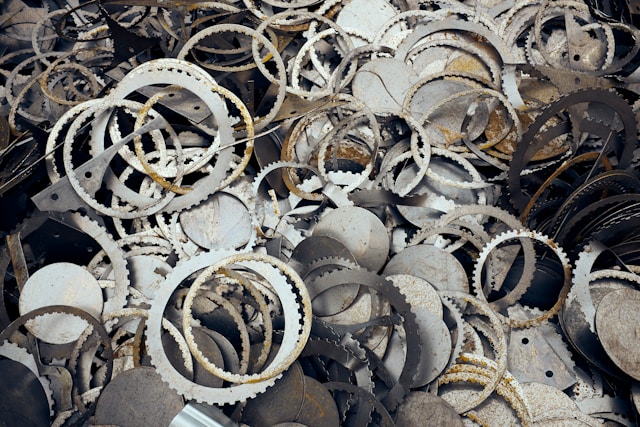Table of Contents:
- The Basics of Scrap Metal Recycling
- Environmental Advantages of Metal Recycling
- The Lifecycle of Recycled Metals
- Economic Impacts of Metal Recycling
- The Role of Individuals and Communities in Recycling Efforts
The Basics of Scrap Metal Recycling
Scrap metal recycling is the art of reprocessing used metal materials into new and usable raw materials. This innovative practice is essential for resource conservation and a more sustainable circular economy. A class of metals that may be recycled indefinitely without losing quality or functionality includes iron, steel, copper, and aluminum. Recycling these metals can be reused indefinitely, reducing our reliance on virgin material extraction, which can be environmentally damaging.
Initiatives such as refrigerator recycling Sussex County NJ, provide a critical service by enabling consumers to offload their old appliances in an eco-friendly way. This practice prevents the harmful release of refrigerants and chemicals into the environment. It contributes to conserving metals that would otherwise require energy-intensive processes to be mined and refined. Recycling a single refrigerator can thus have a ripple effect, extending far beyond local environmental benefits.
Environmental Advantages of Metal Recycling
The environmental dividends paid by the recycling of metals are vast and profound. One of the most impactful advantages lies in the reduced greenhouse gas emissions of metal production from virgin resources. By circumventing the process of mining and the subsequent refining of metals, a significant amount of energy expenditure is saved, which translates directly into a decrease in the carbon footprint of metal manufacturing.
The Lifecycle of Recycled Metals
Metal products pass through an extensive lifecycle that spans from the extraction phase to their endpoint as part of new products on the market. The ability of metals to be recycled changes the game in terms of environmental conservation. Once these metals become waste, they can be collected, processed, and funneled back into production. The considerable savings in energy and resources afforded by this repurposing are compelling. Consumers play a pivotal role in this lifecycle extension by choosing products made from recycled materials and disposing of metal waste appropriately.
Economic Impacts of Metal Recycling
The economics of metal recycling are multi-faceted, with beneficial impacts that stretch from the job market to international trade. An industry that supports the foundation of a circular economy where materials are continuously in flux and reused to their maximum extent can inject vigor into the economy through waste reduction strategies. Beyond compliance with regulatory pressure for more sustainable business models, the scrap metal trade is an international market with trends moving aggressively towards environmentally friendly practices.
The Role of Individuals and Communities in Recycling Efforts
The success of recycling programs is fundamentally linked to the investment of individuals and communities. When people become actively involved in local recycling efforts, they directly contribute to environmental conservation and encourage a broader cultural shift towards sustainable living. Community dedication and collective action can serve as powerful catalysts for change, inspiring larger-scale initiatives and provoking action from stakeholders in both the public and private spheres.




